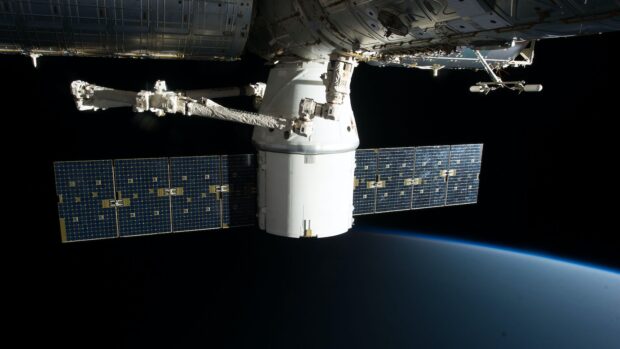German scientists have made a groundbreaking discovery regarding the cybersecurity risks faced by satellites. Researchers from Ruhr University Bochum and the CISPA Helmholtz Center for Information Security have found that satellites are vulnerable due to a lack of data encryption. This opens up the possibility for hackers to intercept and access sensitive information and even manipulate satellites to crash into the Earth.
The importance of this discovery cannot be understated, as McKinsey & Company, a global management consulting firm, reveals that there are approximately 7,500 satellites orbiting our planet. On average, 50 satellites are added to this number every week. Given how reliant modern life is on satellite technologies, such as GPS for Google Maps and Starlink Internet, it is crucial that we understand the potential risks and take steps to secure these devices.
To better understand the software security of satellites, the researchers at Ruhr University Bochum and CISPA Helmholtz Center for Information Security conducted a study using three real-world in-orbit satellites: ESTCube-1, OPS-SAT, and Flying Laptop. The study identified several serious security risks, including Denial of Service and Control, malicious data interaction, and seizure of control. The researchers discovered six different vulnerabilities and 13 separate flaws in the satellites they analyzed. They also surveyed 19 professional satellite engineers and developers to gain further insights into these issues.
One concerning finding from the survey was that three out of 17 satellites had no security measures in place to prevent third parties from taking control of them. This highlights the fact that the focus has been on creating functioning systems rather than secure ones.
The philosophy of “achieving security by obscurity” seems to prevail in the space industry, with little information available about how satellite companies protect their devices. Gregory Falco, an assistant professor at Johns Hopkins University, explained that space firmware development poses unique challenges. It often relies on legacy software that is rarely updated, and the developers primarily come from aerospace engineering backgrounds rather than software development.
Protecting satellites is essential because the study warns of the potential for a catastrophic event known as the Kessler Syndrome. If hackers seize control of satellites, they could cause these devices to collide with one another, creating a cascade of space debris that could destroy other orbital systems and trigger a chain reaction. Additionally, satellites play crucial roles in daily functions, such as powering GPS for mobile apps, facilitating weather forecasting, supporting ATM transactions, enabling global supply chain management, transmitting emergency SOS signals, monitoring land stewardship, and providing internet access to remote communities.
In conclusion, the German researchers’ discovery of severe cybersecurity risks to satellites highlights the urgent need for enhanced security measures. Many satellites currently lack sufficient protection against data breaches and unauthorized control. The reluctance of space companies to prioritize security exacerbates this issue. Governments must prioritize cybersecurity for these orbital devices to safeguard critical services worldwide.
Denial of responsibility! VigourTimes is an automatic aggregator of Global media. In each content, the hyperlink to the primary source is specified. All trademarks belong to their rightful owners, and all materials to their authors. For any complaint, please reach us at – [email protected]. We will take necessary action within 24 hours.


